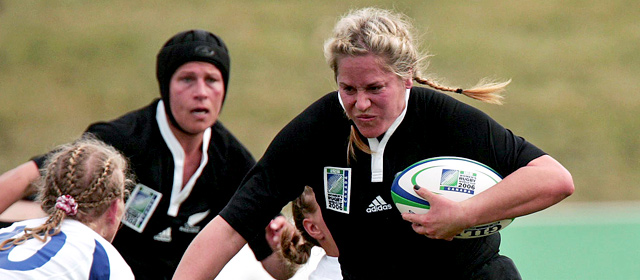He korero whakarapopoto
Assumptions about gender – for instance, that boys are noisy and physical while girls are quiet and less physical – can limit people’s participation in sport. There have been many assumptions about sport and gender, including what sports women and men can play. Women were only officially recognised as able to run marathons in 1967, and in the 2000s some women’s sports were still being added to the Olympics.
In 2007–8, 80% of New Zealand women and men participated in sport at least once a week, and roughly equal numbers of male and female athletes competed at the 2008 Beijing Olympics.
Sporting codes
Women have played sport since the 19th century, but this was often opposed. Women’s sport was seen as less important than men’s sport.
Some sports, such as croquet and tennis, were traditionally played by both men and women. Women athletes were limited to sprints, hurdles and some field events until the later 20th century. Women’s rugby was not taken seriously until the 1980s. Although the Black Ferns (the national women’s rugby team) have won six world cups, they still have less status and lower funding than the All Blacks. However, netball is played almost entirely by women, and has a high profile.
Equestrianism is one of the few sports where men and women compete on equal terms.
Administration
Women have been under-represented on boards of sports organisations, especially in leadership positions. 27% of positions on boards were held by women in 2007.
Distinguished women administrators include Kereyn Smith, who became the first female secretary general of the New Zealand Olympic Committee in 2011.
Coaching
There have been some very successful male coaches of women’s teams, but female coaches of men’s teams are less common. Women are under-represented in top-level coaching roles. In the 2000s some sports organisations worked to increase the numbers and skills of women coaches.
Funding and awards
In some sports women’s teams receive less funding than men’s teams. Women’s sport receives less media coverage – in the 2000s netball was the only women’s sport that was regularly on television. Women get more coverage during high-profile events like the Olympics and Commonwealth Games.





